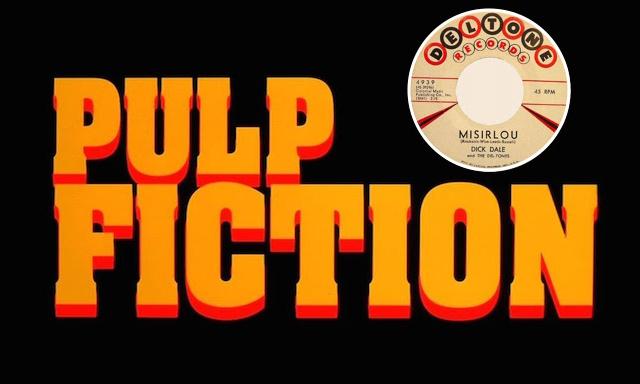Even though it has no lyrics and features in the movie for all of maybe two minutes, 'Misirlou' is immediately tied to Quentin Tarantino's 'Pulp Fiction'.
The song was first recorded in 1962 by the now sadly-departed Dick Dale and his Del-Tones. The surf-rock king was from a background of Lebanese and Polish-Belorussian immigrants, and was familiar and versed in Arabian and Mediterranean music.
The song 'Misirlou' originally began life as a folk song that was well-known in Greece, Turkey, Armenia, and came to the US and the West through the breakup of the Ottoman Empire in the '20s. The earliest recording of the song was made in 1927 by Tetos Demetriades, however a recording by pianist Jan August in the '50s turned it into an American hit.
By 1961, a version was recorded with Martin Denny, known as the father of 'exotica' music that became extensively used in belly-dancing routines, yet Dick Dale's version from 1962 is the one that's most often remembered.
The story - whether it's true or not - goes that Dale was challenged by an audience member to play a song on only one string of his guitar. Remembering his father and uncles playing the oud - a traditional lute instrumental found across the Eastern Mediterranean and as far away as Iraq and Afghanistan - Dale quickly played 'Misirlou', a well-known folk song on his Fender.
Before long, the song was recorded with a rock beat and horns and became a staple of surf rock music. Even The Beach Boys recorded a version of the song and placed it on their 'Surfin' USA' album from the same year.
When you listen back to the soundtrack from 'Pulp Fiction', it's steeped in surf-rock. The final scene of the movie, when Jules and Vincent leave the coffee house, is soundtracked by The Lively One's 'Surf Rider'. Another surf-music staple, 'Bustin' Surfboards' by the Tornadoes, features in a scene where Jody explains piercing to her friend, played by Irish singer-actor Bronagh Gallagher.
For Dick Dale, the song was tied to him since it first gained airplay in the '60s. As he described in an interview in 1981, "I changed the tempo, and just started cranking on that mother. And ... it was eerie. The people came rising up off the floor, and they were chanting and stomping."
'Pulp Fiction' helped to popularise the song yet again in the '90s, and a quarter of a century later, 'Misirlou' is as tied to the movie as any actor, quote or scene.








































































